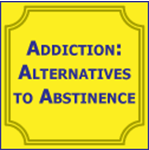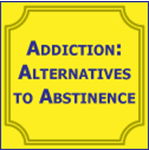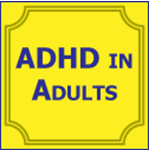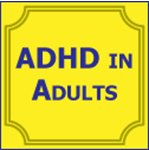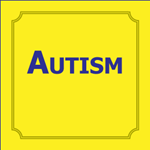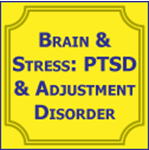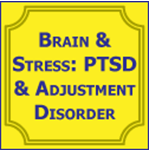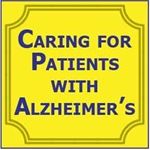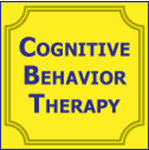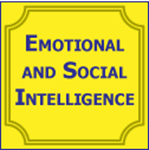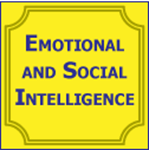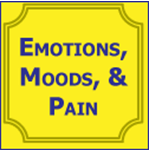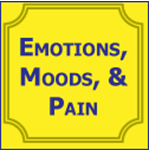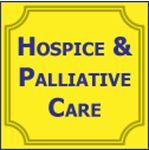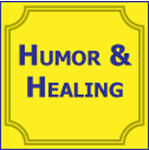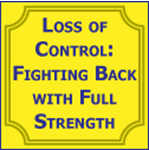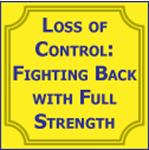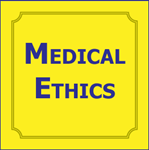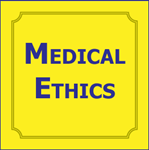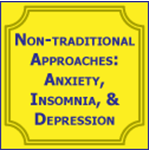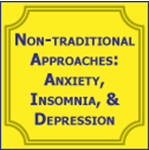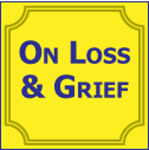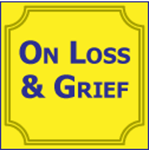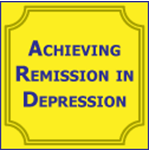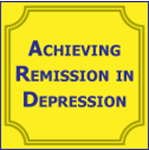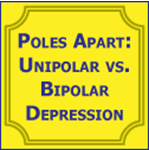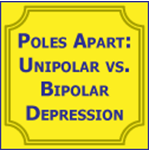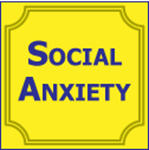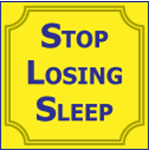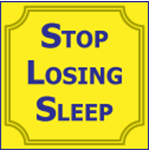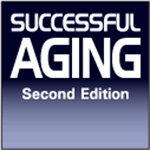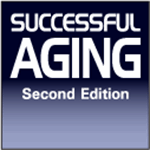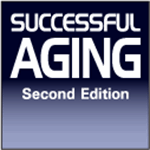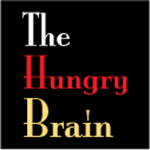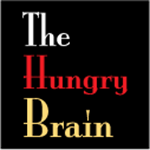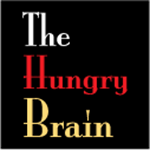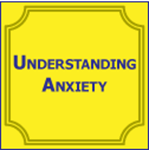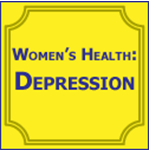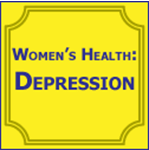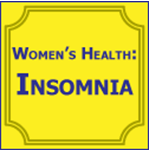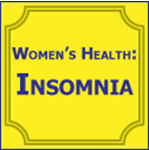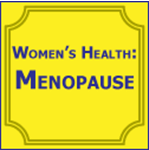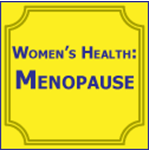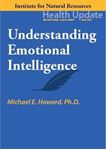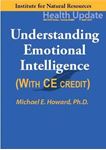You have no items in your shopping cart.
ASWB ACE
Home Study Courses Offering ASWB ACE Credit
These are approved provider level courses and they have not been approved individually by ASWB ACE, so they do not meet requirements for CE credit for New Jersey licensed social workers. For a list of courses that meets New Jersey approval, please click here.
Live workshop and live webinar ASWB ACE approval information for social workers can be found on the individual promotional web page for each INR course that offers social work credit.
Addiction: Alternatives to Abstinence
Identifies the three major treatment models for addictive behaviors and a brief history of each: (a) the moral model, (b) the medical model, (c) the harm-reduction model. Describes the most recent research on the effectiveness of abstinence and harm-reduction addiction treatment programs and who each approach is best suited for. Lists protective behavioral strategies (PBS) used in moderating alcohol use among college students. Identifies the risk factors for “overdose” and list the strategies for prevention. Describes approaches to treating opioid dependence and the benefits and drawbacks of each.
$30.00
Addiction: Alternatives to Abstinence - Ebooklet
Identifies the three major treatment models for addictive behaviors and a brief history of each: (a) the moral model, (b) the medical model, (c) the harm-reduction model. Describes the most recent research on the effectiveness of abstinence and harm-reduction addiction treatment programs and who each approach is best suited for. Lists protective behavioral strategies (PBS) used in moderating alcohol use among college students. Identifies the risk factors for “overdose” and list the strategies for prevention. Describes approaches to treating opioid dependence and the benefits and drawbacks of each.
$25.00
ADHD In Adults
Identifies the rates of incidence and essentials of diagnosis of Attention Deficit Hyperactivity Disorder. Discusses the issues and controversies in diagnosis of adult ADHD. Describes the clinical essentials of differential diagnosis of ADHD in adults and presentations of other disorders with similar core symptoms. Identiies medications (stimulants and non-stimulants) that may be used in pharmacological management of ADHD in the adult population. Discusses the recent developments in the field of non-stimulant medications for adult ADHD, including cholinergic drugs and atypical antidepressants.
$30.00
ADHD In Adults - Ebooklet
Identifies the rates of incidence and essentials of diagnosis of Attention Deficit Hyperactivity Disorder. Discusses the issues and controversies in diagnosis of adult ADHD. Describes the clinical essentials of differential diagnosis of ADHD in adults and presentations of other disorders with similar core symptoms. Identiies medications (stimulants and non-stimulants) that may be used in pharmacological management of ADHD in the adult population. Discusses the recent developments in the field of non-stimulant medications for adult ADHD, including cholinergic drugs and atypical antidepressants.
$25.00
Autism - 3 Hours
Describes the differences between the previous Diagnostic and Statistical Manual of Mental Disorders (DSM-IV), and the current one (DSM-5) in terms of how autism, autism spectrum disorder (ASD) and related disorders are viewed and diagnosed. Identifies the physiological, familial, and psychological issues in the clinical diagnosis of autism spectrum disorder. Identifies the issues of toxicity from heavy metal (mercury, lead) and other pathogenic factors in the development of autism spectrum disorder. Identifies medications used in management of various clinical resentations and comorbidities of autism spectrum disorder. Discusses appropriate nonpharmacological (general health, psychological, and behavioral) approaches to the treatment of autism spectrum disorder.
$30.00
Brain & Stress: PTSD & Adjustment Disorder
Explains the principles of diagnosis and differential diagnosis of Adjustment Disorder, the controversy that surrounds its classification, and its proper place in the hierarchy of psychiatric disorders. Identifies helpful strategies for patients with Adjustment Disorder. Outlines the issues of diagnosis and management of Post-Traumatic Stress Disorder. Describes Shared Psychotic Disorder and its diagnosis and treatment. Describes ways to cope with stress and recommends appropriate coping strategies to patients.
$30.00
Brain & Stress: PTSD & Adjustment Disorder - Ebooklet
Explains the principles of diagnosis and differential diagnosis of Adjustment Disorder, the controversy that surrounds its classification, and its proper place in the hierarchy of psychiatric disorders. Identifies helpful strategies for patients with Adjustment Disorder. Outlines the issues of diagnosis and management of Post-Traumatic Stress Disorder. Describes Shared Psychotic Disorder and its diagnosis and treatment. Describes ways to cope with stress and recommends appropriate coping strategies to patients.
$25.00
Caring for Patients with Alzheimer’s
Lists methods to assist patients with memory and communication problems. Lists strategies to assist patients with mood and behavioral problems. Identifies strategies to assist patients with physical and personal hygiene problems. Identifies approaches to mealtime and nutritional health. Identifies strategies for handling exercise, socializing, and other activities. Discusses when and how to consider alternative living arrangements including respite care. Describes the legal and financial concerns that need to be addressed.
$30.00
Cognitive Behavior Therapy
Identifies the major components of cognitive behavioral therapy and the causative relationship between environmental events, thoughts, emotions, and behavior. Lists the common types of flawed and irrational beliefs that create depression, anxiety, and stress. Describes the “ABC” process of converting irrational thinking into rational thinking. Describes cognitive-behavioral treatment strategies for depression and anxiety. Defines “allostasis” and “allostatic load” aspects of stress and describe the “Stress Inoculation Training” approach to stress management.
$30.00
Emotional & Social Intelligence
Explains the concept of emotional intelligence. Describes the relationship between emotions and the brain. Outlines how to use emotional intelligence to reduce negative moods. Explains the concept of social intelligence and its components. Identifies the neural circuitry underlying interpersonal behavior. Describes educational programs designed to heighten emotional and social intelligence.
$30.00
Emotional & Social Intelligence - Ebooklet
Explains the concept of emotional intelligence. Describes the relationship between emotions and the brain. Outlines how to use emotional intelligence to reduce negative moods. Explains the concept of social intelligence and its components. Identifies the neural circuitry underlying interpersonal behavior. Describes educational programs designed to heighten emotional and social intelligence.
$25.00
Emotions, Moods, & Pain
Lists and describe the six basic emotions that have unique facial expressions. Explains the difference between emotions and moods. Discusses the relationship between emotions, moods, and pain. Identifies brain structures and neurochemicals that play a role in both moods and pain. Discusses the relationship of pain to both acute stress and chronic stress. Lists the similarities between stress management and pain management. Identifies the similar brain areas involved in both physical and emotional pain. Explains the interactions between anxiety disorders, depression, and pain. Discusses cognitive behavioral therapy and its role in pain management.
$30.00
Emotions, Moods, & Pain - Ebooklet
Lists and describe the six basic emotions that have unique facial expressions. Explains the difference between emotions and moods. Discusses the relationship between emotions, moods, and pain. Identifies brain structures and neurochemicals that play a role in both moods and pain. Discusses the relationship of pain to both acute stress and chronic stress. Lists the similarities between stress management and pain management. Identifies the similar brain areas involved in both physical and emotional pain. Explains the interactions between anxiety disorders, depression, and pain. Discusses cognitive behavioral therapy and its role in pain management.
$25.00
Hospice & Palliative Care
Discusses the goals and challenges involved in palliative care. Lists key aspects of addressing advanced medical directives, do-not-resuscitate (DNR) orders, mechanical ventilation, and tube feedings at the end of life. Describes major symptoms encountered in terminal illness and treatment options. Outlines common sources of mental, emotional, and spiritual suffering at the end of life and measures to ease them. Identifies key factors to improve communication with the patient and family members and ease caregiver stress.
$30.00
Humor & Healing
Describes the different definitions of humor. Identifies the various theories of humor. Discusses the physiology and therapeutic effects of laughter. Discusses the use of humor in health care settings and the role of humor for health care professionals. Defines the relationship between children and humor and the elderly and humor. Identifies some strategies for adding humor to health care practices.
$30.00
Loss of Control: Fighting Back with Full Strength
Describes the issues related to stress-induced feelings of loss of control, the physiological and psychological mechanisms behind these issues, and means of coping with them. Identifies grief-, aggression- and suicide-related trends in both society and the individual and identifies the neurobiologic mechanisms involved. Develops approaches to the rehabilitation of patients who have loss of control issues that lead to substance abuse. Identifies patients at risk for disorders that may be triggered by the feeling of loss of control.
$30.00
Loss of Control: Fighting Back with Full Strength - Ebooklet
Describes the issues related to stress-induced feelings of loss of control, the physiological and psychological mechanisms behind these issues, and means of coping with them. Identifies grief-, aggression- and suicide-related trends in both society and the individual and identifies the neurobiologic mechanisms involved. Develops approaches to the rehabilitation of patients who have loss of control issues that lead to substance abuse. Identifies patients at risk for disorders that may be triggered by the feeling of loss of control.
$25.00
Medical Ethics
Identifies and discusses the principles of medical ethics. Defines and distinguishes between ethics, morals, and values. Identifies the ethical obligations in a clinician-patient relationship. Explains the issues surrounding patient consent, including informed consent, voluntary consent, and competent consent. Discusses ethical principles in preserving patients’ confidentiality, including the requirements of the Health Insurance Portability and Accountability Act (HIPAA). Explains the legal documents that apply to end-of-life health care decisions and the ethical principles that apply to the right-to-die controversy. Identifies the core values and code of ethics as they should be applied within the medical professions.
$30.00
Medical Ethics - Ebooklet
Identifies and discusses the principles of medical ethics. Defines and distinguishes between ethics, morals, and values. Identifies the ethical obligations in a clinician-patient relationship. Explains the issues surrounding patient consent, including informed consent, voluntary consent, and competent consent. Discusses ethical principles in preserving patients’ confidentiality, including the requirements of the Health Insurance Portability and Accountability Act (HIPAA). Explains the legal documents that apply to end-of-life health care decisions and the ethical principles that apply to the right-to-die controversy. Identifies the core values and code of ethics as they should be applied within the medical professions.
$25.00
Non-traditional Approaches: Anxiety, Insomnia, & Depression
Identifies and describe cognitive behavioral therapy techniques used in treatment of insomnia, depression, and anxiety. Discusses how existing communication technology expands psychotherapeutic treatment options. Lists reasons why many people with anxiety disorders never seek medical help. Discusses how non-traditional approaches can improve patient care and outcomes.
$30.00
Non-traditional Approaches: Anxiety, Insomnia, & Depression - Ebooklet
Identifies and describe cognitive behavioral therapy techniques used in treatment of insomnia, depression, and anxiety. Discusses how existing communication technology expands psychotherapeutic treatment options. Lists reasons why many people with anxiety disorders never seek medical help. Discusses how non-traditional approaches can improve patient care and outcomes.
$25.00
On Loss & Grief
Discusses the clinical study of grief from classical to modern times. Identifies emotional, cognitive, behavioral, social, and physical responses to loss. Describes resilience to loss and explain what may increase the likelihood of this response. Discusses the role of grief counseling and when it may be useful. Describes an intervention model for dealing with loss and grief. Explains the differences between normal and complicated grief. Discusses the treatment of grief in children and adolescents.
$30.00
On Loss & Grief - Ebooklet
Discusses the clinical study of grief from classical to modern times. Identifies emotional, cognitive, behavioral, social, and physical responses to loss. Describes resilience to loss and explain what may increase the likelihood of this response. Discusses the role of grief counseling and when it may be useful. Describes an intervention model for dealing with loss and grief. Explains the differences between normal and complicated grief. Discusses the treatment of grief in children and adolescents.
$25.00
Paradise Regained: Achieving Remission in Depression
Identifies pharmacological, herbal, and integrative approaches useful in remission-oriented management of unipolar depression/major depressive disorder and bipolar disorder. Outlines the issues of neurotransmitter-affecting medications, associated side effects, and interactions with other medications, including drugs used in dental practice. Discusses the optimal strategies for treatment augmentation in cases of treatment-resistant depression. Discusses experimental treatments for depression (e.g., transcranial magnetic therapy and vagus nerve stimulation) with patients.
$30.00
Paradise Regained: Achieving Remission in Depression - Booklet
Identifies pharmacological, herbal, and integrative approaches useful in remission-oriented management of unipolar depression/major depressive disorder and bipolar disorder. Outlines the issues of neurotransmitter-affecting medications, associated side effects, and interactions with other medications, including drugs used in dental practice. Discusses the optimal strategies for treatment augmentation in cases of treatment-resistant depression. Discusses experimental treatments for depression (e.g., transcranial magnetic therapy and vagus nerve stimulation) with patients.
$25.00
Poles Apart: Unipolar vs. Bipolar Depression
Identifies the basic neurophysiology, pathogenesis, etiology, and diagnosis of affective unipolar disorder/major depressive disorder (UD/MDD) and bipolar disorder (BD). Discusses the involvement of various chemical imbalances in these affective disorders, including neurotransmitters and neurohormones such as serotonin, norepinephrine, dopamine and cortisol. Lists the differential diagnosis of these conditions and the management of both disorders. Describe the spectrum of available pharmacological, psychotherapeutic, and experimental therapies for both conditions.
$30.00
Poles Apart: Unipolar vs. Bipolar Depression - Ebooklet
Identifies the basic neurophysiology, pathogenesis, etiology, and diagnosis of affective unipolar disorder/major depressive disorder (UD/MDD) and bipolar disorder (BD). Discusses the involvement of various chemical imbalances in these affective disorders, including neurotransmitters and neurohormones such as serotonin, norepinephrine, dopamine and cortisol. Lists the differential diagnosis of these conditions and the management of both disorders. Describe the spectrum of available pharmacological, psychotherapeutic, and experimental therapies for both conditions.
$25.00
Positive Psychology
Describes the origin and goals of the new “positive psychology.” Lists the factors that contribute to happiness and life satisfaction. Discusses the research findings related to happiness and life satisfaction. Lists several activities and exercises that can enhance happiness and life satisfaction.
$30.00
Positive Psychology - Ebooklet
Describes the origin and goals of the new “positive psychology.” Lists the factors that contribute to happiness and life satisfaction. Discusses the research findings related to happiness and life satisfaction. Lists several activities and exercises that can enhance happiness and life satisfaction.
$25.00
Psychology of Relationships
Social workers routinely encounter patients who are experiencing problems in their personal relationships, in clinics, hospitals, long term care facilities and community centers, and in home visits. These difficulties may range from poor communication to serious disagreements and arguments, to verbal abuse and physical violence perpetrated by one partner on another or a parent on a child. Many patients may be involved in a relationship that is clearly "dysfunctional" and even harmful, yet the person does not seem able to extricate themselves from it. Others may be involved in relationships that are relatively stable and less problematic, yet they will tend to have the same disagreements or arguments repeatedly. These relationship difficulties can cause individuals significant stress and aggravation, undermine their well-being, potentially contribute to health problems, and in some cases can put individuals in considerable danger.
$35.00
Reducing Stress
Explains how the body responds to and processes stress. Identifies the impact of stress on risk for heart disease and the physiological mechanisms that may mediate this link. Describes the role stress may play in increasing risk for health problems across the life span. Identifies a number of interventions for reducing stress.
$30.00
Reducing Stress - Ebooklet
Explains how the body responds to and processes stress. Identifies the impact of stress on risk for heart disease and the physiological mechanisms that may mediate this link. Describes the role stress may play in increasing risk for health problems across the life span. Identifies a number of interventions for reducing stress.
$25.00
Social Anxiety
Defines social anxiety. Describes the symptoms of social anxiety. Identifies the causes of social anxiety. Describes the similarities and differences between shyness and social anxiety. Outlines the role of thinking in social anxiety. Describes strategies for coping with and reducing social anxiety.
$30.00
Stop Losing Sleep
Outlines the classification and diagnosis of sleep disorders, including various insomnias and circadian rhythm anomalies, restless legs syndrome (RLS), and periodic limb movement disorder (PLMD). Identifies other conditions that may contribute to sleep disorders, including neurological, endocrinological, and psychological disorders. Describes the approaches to management of sleep disorders, both pharmacological and nonpharmacological (e.g., dietary, hygienic, and psychosocial). Identifies clinical ramifications of sleep apnea and RLS/PLMD pertinent to dental practice and general clinical practice.
$30.00
Stop Losing Sleep - Ebooklet
Outlines the classification and diagnosis of sleep disorders, including various insomnias and circadian rhythm anomalies, restless legs syndrome (RLS), and periodic limb movement disorder (PLMD). Identifies other conditions that may contribute to sleep disorders, including neurological, endocrinological, and psychological disorders. Describes the approaches to management of sleep disorders, both pharmacological and nonpharmacological (e.g., dietary, hygienic, and psychosocial). Identifies clinical ramifications of sleep apnea and RLS/PLMD pertinent to dental practice and general clinical practice.
$25.00
Successful Aging - 2nd ed
This home-study course describes the best ways to age healthfully and improve your patients` quality of life at any age, including tips on how to cultivate a youthful attitude, safeguard against stress and chronic illness, improve dietary and exercise habits, maximize memory and beef up energy, enhance financial security, and live a long and rewarding life.
$35.00
Successful Aging 2nd ed - EBOOK
This home-study course describes the best ways to age healthfully and improve your patients` quality of life at any age, including tips on how to cultivate a youthful attitude, safeguard against stress and chronic illness, improve dietary and exercise habits, maximize memory and beef up energy, enhance financial security, and live a long and rewarding life.
$25.00
Successful Aging 2nd ed - EBOOK only *NO CE
This home-study course describes the best ways to age healthfully and improve your patients` quality of life at any age, including tips on how to cultivate a youthful attitude, safeguard against stress and chronic illness, improve dietary and exercise habits, maximize memory and beef up energy, enhance financial security, and live a long and rewarding life.
$15.00
The Hungry Brain
The Hungry Brain explores new discoveries about the brain`s hunger for pleasure and calories-the so-called "irresistable" foods - and how one can control temptation. The book discusses the latest scientific findings about nutrients that speed memory processing and protect against Alzheimer`s disease - including a brain homework and a grocery list to make it happen!
$40.00
The Hungry Brain - EBOOK
The Hungry Brain explores new discoveries about the brain`s hunger for pleasure and calories-the so-called "irresistable" foods - and how one can control temptation. The book discusses the latest scientific findings about nutrients that speed memory processing and protect against Alzheimer`s disease - including a brain homework and a grocery list to make it happen!
$30.00
The Hungry Brain - EBOOK only *NO CE
The Hungry Brain explores new discoveries about the brain`s hunger for pleasure and calories-the so-called "irresistable" foods - and how one can control temptation. The book discusses the latest scientific findings about nutrients that speed memory processing and protect against Alzheimer`s disease - including a brain homework and a grocery list to make it happen!
$20.00
Understanding Anxiety
Explains the difference between normal anxiety and an anxiety disorder. Describes the causes of anxiety. Outlines the demographics of anxiety. Describes the anxious personality. Recognizes and describes the most common anxiety disorders in adults and children including symptoms and treatment. Describes the role of exercise in treating anxiety. Describes common methods of assessing anxiety in primary care settings. Explains how state anxiety and trait anxiety differ. Outlines common comorbidities frequently seen with anxiety.
$30.00
Women's Health: Depression
Identifies the most prevalent forms of depression. Identifies the symptoms of depression and mania. Identifies the differences in presentation across age groups and sexes. Compares the theories of depression. Reviews depression treatment modalities.
$30.00
Women's Health: Depression - Ebooklet
Identifies the most prevalent forms of depression. Identifies the symptoms of depression and mania. Identifies the differences in presentation across age groups and sexes. Compares the theories of depression. Reviews depression treatment modalities.
$25.00
Women's Health: Insomnia
Discusses the physiology of sleep. Describes healthy sleep patterns. Identifies the different types of insomnia. Discusses women’s sleep problems across their life cycle. Identify treatments for insomnia including optimal sleep hygiene, behavioral methods, and pharmaceuticals.
$30.00
Women's Health: Insomnia - Ebooklet
Discusses the physiology of sleep. Describes healthy sleep patterns. Identifies the different types of insomnia. Discusses women’s sleep problems across their life cycle. Identify treatments for insomnia including optimal sleep hygiene, behavioral methods, and pharmaceuticals.
$25.00
Women's Health: Menopause
Identifies the hormonal and neurologic changes that occur during menopause. Discusses the symptoms of perimenopause and menopause, as well as effective treatments, including medication and behavioral approaches. Describes the latest research on the benefits and risks of hormone replacement therapy, and identifies the conditions and symptoms for which HRT may be appropriate. Discusses the pros and cons of a variety of alternative remedies for menopausal insomnia, hot flashes, and depression, such as black cohosh and vitamin B supplements. Addresses recent developments in the prevention of chronic disease risk at menopause, including lifestyle changes and prophylactic medications.
$30.00
Women's Health: Menopause - Ebooklet
Identifies the hormonal and neurologic changes that occur during menopause. Discusses the symptoms of perimenopause and menopause, as well as effective treatments, including medication and behavioral approaches. Describes the latest research on the benefits and risks of hormone replacement therapy, and identifies the conditions and symptoms for which HRT may be appropriate. Discusses the pros and cons of a variety of alternative remedies for menopausal insomnia, hot flashes, and depression, such as black cohosh and vitamin B supplements. Addresses recent developments in the prevention of chronic disease risk at menopause, including lifestyle changes and prophylactic medications.
$25.00
Understanding Emotional Intelligence - DVD - 6 Hours (w/Home-study exam)
Outlines the characteristics of emotions and their importance in human social behavior. Lists the five major domains of emotional intelligence. Explains the effects of emotional intelligence and social intelligence on love, happiness, and work. Describes strategies to improve self-awareness, self-management, social awareness, and relationship skills. Explains how emotional intelligence impacts mental disorders, chronic illness, provider-patient relationships, and stress management. Outlines how the information in this course can be utilized to improve patient care and patient outcomes. Describes, for this course, the implications for dentistry, mental health, and other health professions.
$83.00
Understanding Emotional Intelligence - Streaming Video - 6 Hours (w/Home-study exam)
Outlines the characteristics of emotions and their importance in human social behavior. Lists the five major domains of emotional intelligence. Explains the effects of emotional intelligence and social intelligence on love, happiness, and work. Describes strategies to improve self-awareness, self-management, social awareness, and relationship skills. Explains how emotional intelligence impacts mental disorders, chronic illness, provider-patient relationships, and stress management. Outlines how the information in this course can be utilized to improve patient care and patient outcomes. Describes, for this course, the implications for dentistry, mental health, and other health professions.
$83.00
- 1
- 2

